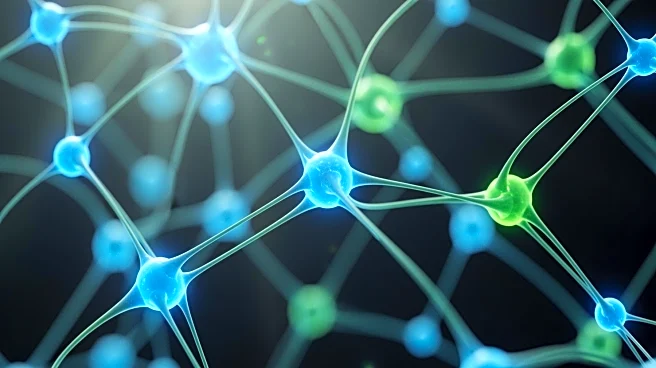Rapid Read • 7 min read
A study has identified RIPK1 kinase as a critical factor in the disruption of the blood-brain barrier during neonatal Escherichia coli meningitis. The research demonstrated that RIPK1 kinase activation leads to the death of brain microvascular endothelial cells, contributing to blood-brain barrier breakdown. The study explored various cell death pathways, including necroptosis, pyroptosis, and apoptosis, activated by the NMEC RS218 strain. RIPK1 kinase was found to drive the assembly of the Ripoptosome, a complex involved in programmed cell death. The findings suggest that targeting RIPK1 kinase could be a potential therapeutic strategy to protect the blood-brain barrier and improve outcomes in neonatal meningitis.
AD
Neonatal meningitis caused by Escherichia coli is a severe condition with high morbidity and mortality rates. The identification of RIPK1 kinase as a key driver of blood-brain barrier disruption provides new insights into the pathogenesis of the disease. Understanding the molecular mechanisms involved in endothelial cell death can lead to the development of targeted therapies to preserve blood-brain barrier integrity and reduce neurological damage. This research has implications for improving treatment strategies and outcomes for affected neonates, potentially reducing the burden on healthcare systems.
Further research is needed to explore the therapeutic potential of RIPK1 kinase inhibitors in neonatal meningitis. Clinical trials may be conducted to assess the efficacy and safety of such treatments in preserving blood-brain barrier function. Collaboration between researchers, clinicians, and pharmaceutical companies will be essential in advancing this research and translating findings into clinical practice. The study also opens avenues for investigating similar mechanisms in other neurological conditions.
AD
More Stories You Might Enjoy











